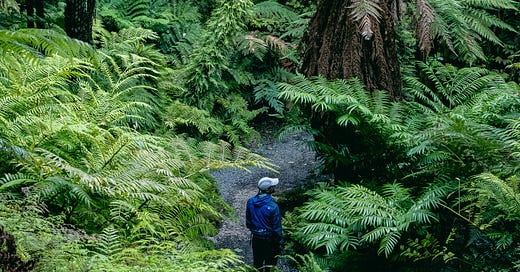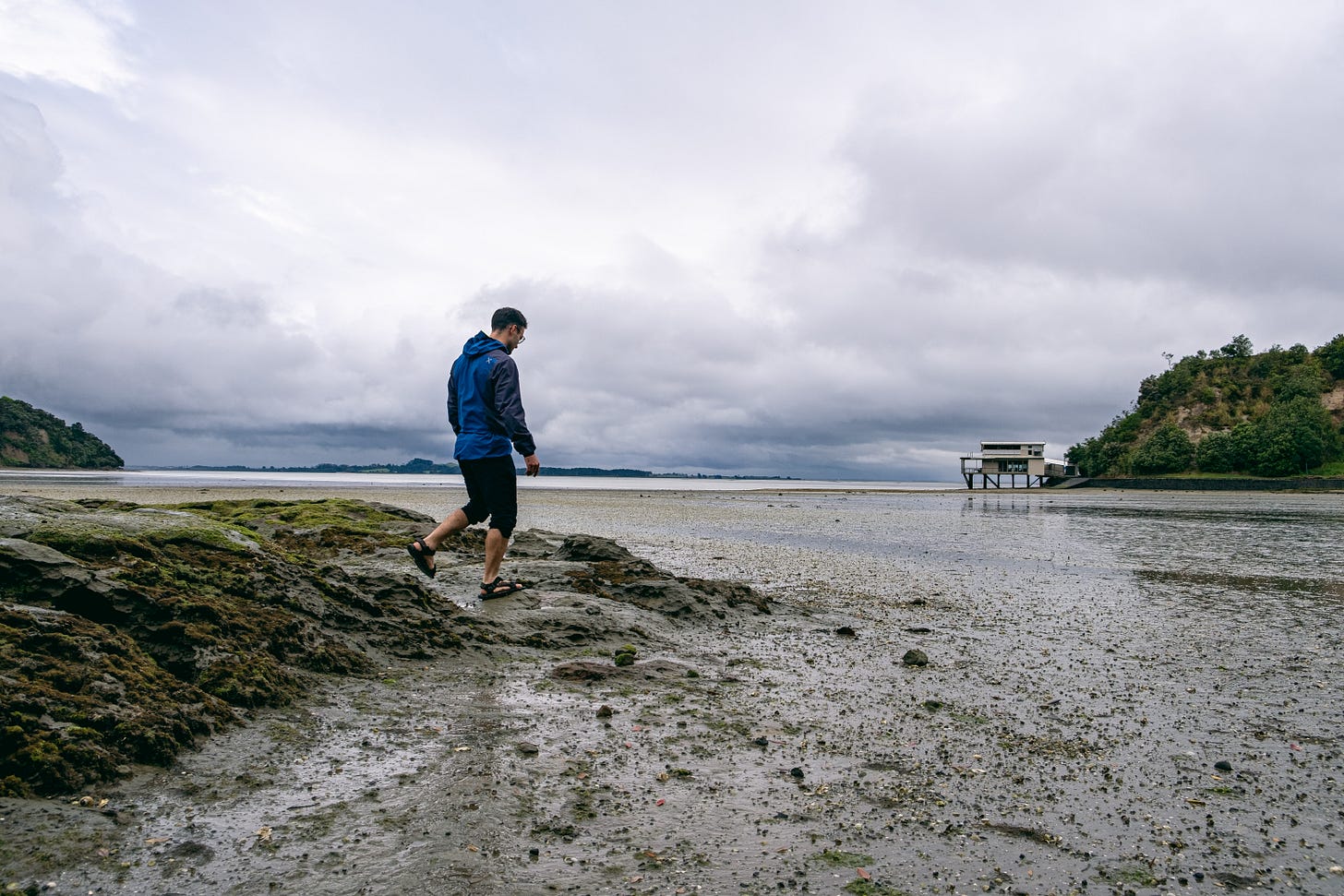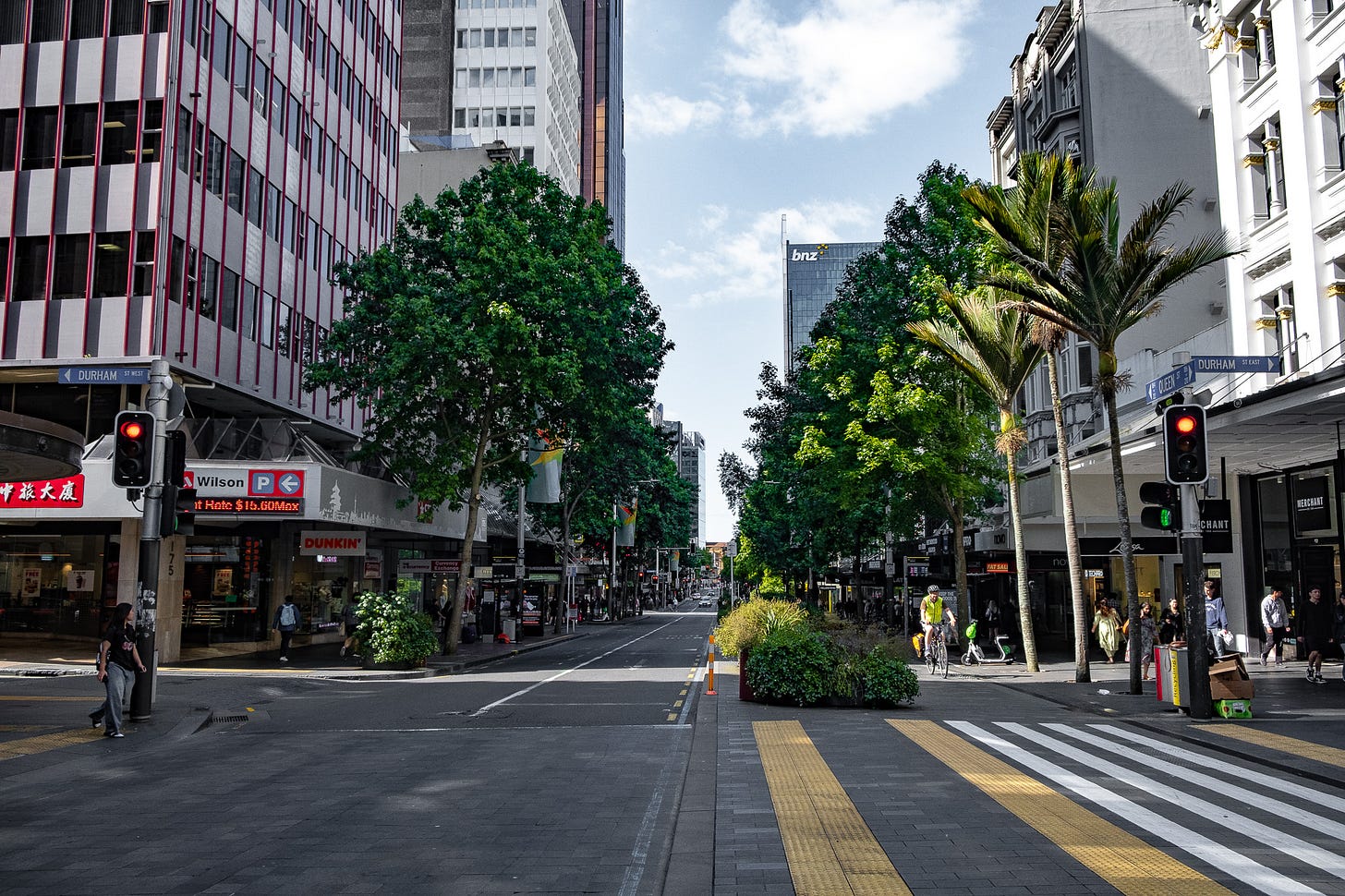Through the land of the Long White Cloud: first impressions of Aotearoa
Un viaggio alla scoperta della Terra dalla Lunga Nuvola Bianca [IT]
Per la versione italiana clicca qui.
Originally written in Italian. Read the original version here.
Wrapped in memories
Aotearoa, the Land of the Long White Cloud – this is what the Māori call the place we know today as New Zealand. An ancestral name that still echoes across these islands where I landed on November 12, 2024.
From the patio of our apartment, Valerie and I watch the seasons change before our eyes. In the morning, as rain caresses the landscape, I slip on an old down jacket, faithful companion of my most meaningful journeys: from Mexico to the North Cape, from Egypt across all of Europe. It's a worn garment, patched over time, a gift from a friend who probably needed it more than I did. I treasure it like a precious memento, a living memory of him and the adventures we shared, bound together by that simple act of generosity.
The dance of time
A breeze rises from the sea, carrying with it the scent of salt. The ocean wind shakes the rain from its placid stillness, reminding it that there are other meadows to nourish, giving our bay a break from the downpour. In these moments, I wear my Montura shell jacket, a gift from my parents before I departed for this new continent. They worried that their thirty-year-old son might suffer from the cold on the other side of the world – and if you're reading these lines, rest assured: I'm staying warm, even when the shell rests in its case.
The first rays of sun awaken the neighborhood bird choir, their song calling out to those who had taken shelter indoors, waiting for the right moment to step outside. Observing the sky, the meaning of Aotearoa reveals itself in all its clarity. According to Māori oral tradition, the constant formation of clouds that hovers over New Zealand's central mountains would have helped Polynesian navigators in their discovery of the land they would come to call Aotearoa, the Land of the Long White Cloud.
Unpredictability and Adaptation
Since the day of my arrival, I have never seen a day without the alternation of rain, sun, and wind. The weather here is so changeable that waiting for the perfect moment to go out would mean postponing every activity indefinitely, chasing an opportunity destined to slip away like grains of sand through fingers.
In this unpredictability lies a surprising beauty. Arriving in this distant part of the world, I've begun to understand more deeply that what I seek is already within me. If I waited for everything to come from outside or waited for the perfect occasion, I would risk remaining a prisoner within the four walls of my mind.
Auckland: a multicultural city
Walking or cycling through Auckland, the most populous city in Aotearoa New Zealand, it becomes impossible to distinguish who is "truly" New Zealand. The reason is simple: this is a country shaped by continuous waves of immigration and emigration, where the very concept of origins becomes elusive.
Moreover, the question of belonging to a place is inherently problematic, for two fundamental reasons. The first is the absence of objective criteria: what parameter should we use? Place of birth? Ancestral origins? Time lived in the country? None of these elements relate to a person's physical characteristics, making any attempt at visual identification of "real New Zealanders" impossible.
The second reason is deeper: the division between "New Zealanders" and "non-New Zealanders" creates an artificial dichotomy, generates labels and separations, an "us" and "them" that represents the first step toward marginalization and, potentially, violence. This is not an unfounded fear: New Zealand, like many countries where pre- and post-colonial cultures coexist, still faces accusations of discrimination, particularly in the healthcare system – a topic that deserves in-depth analysis in another article.
Walking through Auckland, I meet people of the most diverse origins: European, Pacific Islander, Asian, Middle Eastern, Latin American, African. Some clearly identify with Māori culture through their moko, traditional tattoos, which nevertheless do not absolutely define cultural belonging. What I observe is a multicultural mosaic where superficial differences – physical appearance, traditions, cultural practices – begin to dissolve as soon as mutual understanding deepens.
In the end, we are all made of the same substance: flesh, bones, and dreams to pursue, daily struggles and hopes for the future. Whether we were born here or on the other side of the world, we are all composed of the same stardust, as physicists and artists have often reminded us.
Questions for the reader and resources
For you who have read this far, I ask for a few more minutes of your attention and reflection. Try to answer these questions for yourself, and then in the comments:
How do you relate to unpredictability in your life? Do you tend to wait for the perfect moment, or have you learned to adapt to constant change?
What is your relationship with the concept of belonging to a place or culture?
And after doing all this, I recommend reading the following tables. Beyond being informative about New Zealand's multiculturalism, I hope you'll take note of the concepts of Whānau and Whenua, two fundamental words and concepts in Māori culture.
What awaits you?
The following article will provide an overview of our first month in New Zealand, offering a brief introduction to what we've encountered and what's to come.
Sources and insights
Ethnic group summaries reveal New Zealand's multicultural make-up







